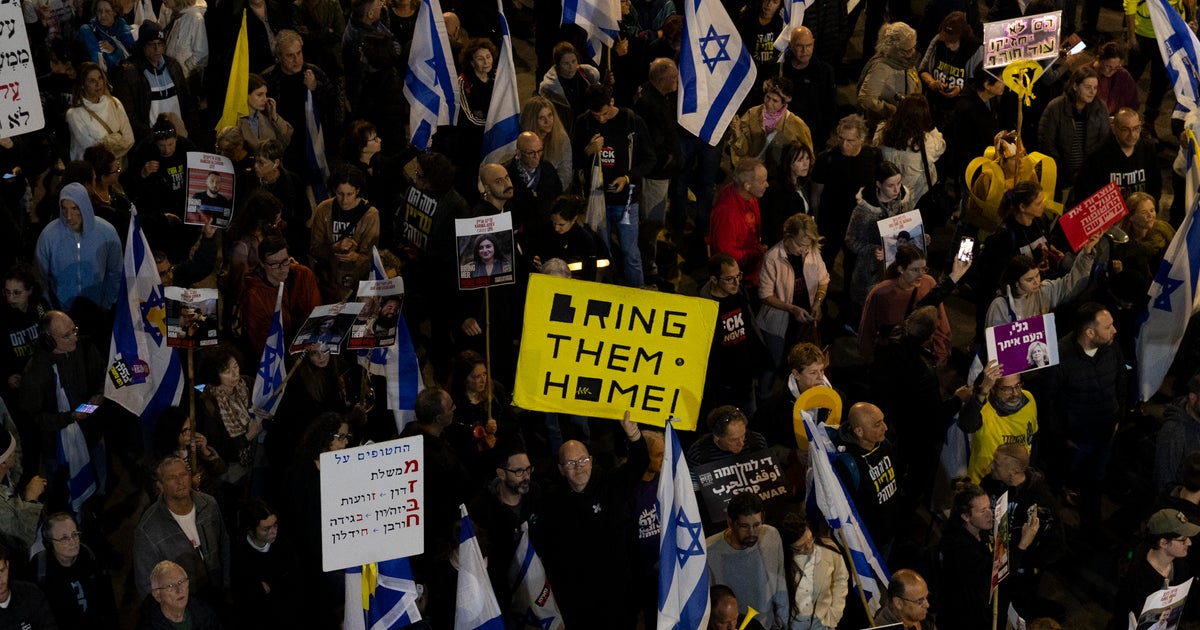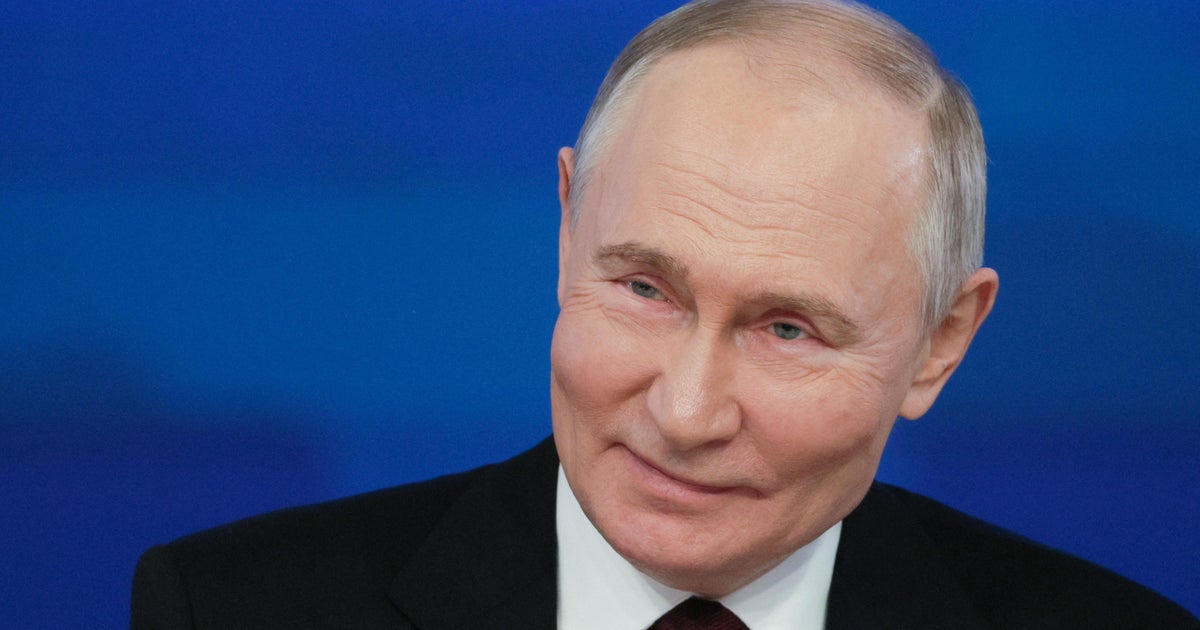Israel kills Islamic Jihad leader in Gaza, Iran-backed militants respond with rockets
Gaza City, Gaza Strip — Israel killed a senior Islamic Jihad commander in Gaza early Tuesday in a rare targeted killing that threatened to unleash a fierce round of cross-border violence with Palestinian militants. The militant group said the commander's wife was also killed in the airstrike and that their children were wounded.
Air raid sirens wailed throughout southern and central Israel as militants responded with heavy rocket fire.
The airstrike that killed Bahaa Abu el-Atta came days after the appointment of hard-line politician Naftali Bennett as Israel's new defense minister. Bennett has long advocated tougher action against Palestinian militants. But speaking to reporters, Lt. Col. Jonathan Conricus, a military spokesman, said the operation had been planned long ago.
Conricus called Abu el-Atta a "ticking time bomb," saying he had been responsible for a number of recent rocket attacks on southern Israel and claimed that he was actively planning new attacks.
"We essentially over the last week have been waiting for the opportune moment to conduct this surgical strike," the spokesman said.
Conricus added that the airstrike had been carried out with a warplane that destroyed only the floor of the building where Abu el-Atta was hiding in order to minimize "collateral damage." The airstrike damaged the half of the second and most of the third floor of a house in the Shejaeya neighborhood, in the eastern part of Gaza City. The house was known to be Abu el-Atta's home.
Gaza's Health Ministry said a man and a woman were killed in an airstrike at a house and two other people were wounded. Relatives and the Islamic Jihad said the woman was Abu el-Atta's wife and the wounded were their children.
The militant group said Abu el-Atta, 42, was undergoing "a heroic act" when he was assassinated. It did not elaborate, but vowed revenge. A large crowd of people carried the bodies of Abu al-Atta and his wife through the streets of Gaza after the strike, calling for revenge.
Minutes after the Iran-backed group confirmed the leader's death, barrages of rockets could be heard fired toward Israel. Air raid sirens continued to go off throughout the morning as far away as Holon and Rishon LeZion, two suburbs of Tel Aviv.
A spokesperson for the Israel Defense Forces (IDF) said about 50 rockets were fired from Gaza but about 20 of them were intercepted by the country's Iron Dome missile defense system. A couple hours later the IDF said it had hit a couple militants carrying a rocket launcher as they drove through Gaza on a motorcycle. Palestinian officials said one person was killed and another injured.
Israel shut down crossing points into Gaza and reduced the permissible fishing area off the territory's coast to 6 nautical miles in anticipation of a looming confrontation after the Tuesday morning strike. Schools were canceled in communities and towns along the Gaza Strip's boundary and all the way to Tel Aviv, about 56 miles north of Gaza.
Islamic Jihad is an Iranian-backed group that often carries out attacks independent of Hamas, the larger militant group that controls Gaza. Conricus described Abu el-Atta as a powerful figure in Gaza who often acts alone without instruction from Tehran or Hamas.
He said Israel had no further plans to resume its assassinations of militant leaders — a practice that in the past has triggered heavy fighting. "There was no other choice," he said of Tuesday's strike.
Bennett, Israel's new defense minister, has long called for a tougher response to rocket fire from Gaza, including a resumption of targeted killings. The comments indicated that Bennett had not played a significant role.
Israel routinely says it holds hold Hamas responsible for any fire emanating from the enclave.
Since Hamas took over Gaza by force in 2007 from the internationally backed Palestinian Authority, Israel and Gaza militants fought three wars, with the third in 2014 lasting for 50 days and was the deadliest and most destructive.
Short-but-frequent spasms of violence have occurred, the latest earlier this month when about 10 projectiles were fired at Israel, which accused Abu el-Atta of being behind them.
Since the 2014 war, Israel has mostly refrained from targeted assassinations of senior Gaza militants, but did so one time in May, Israeli airplanes killed a Hamas commander and financial broker in a car traveling in Gaza City during a three-day exchange of fire.






